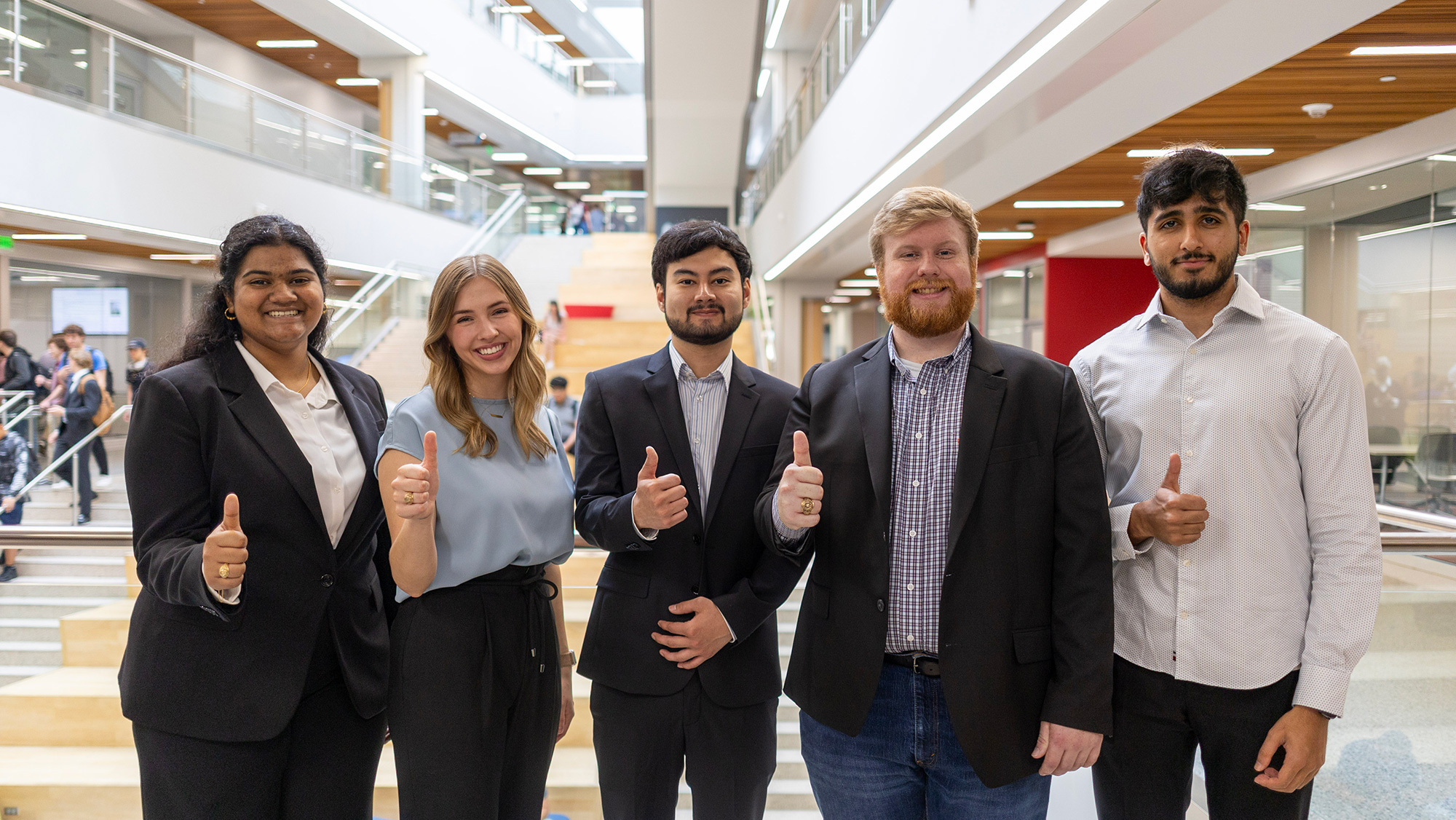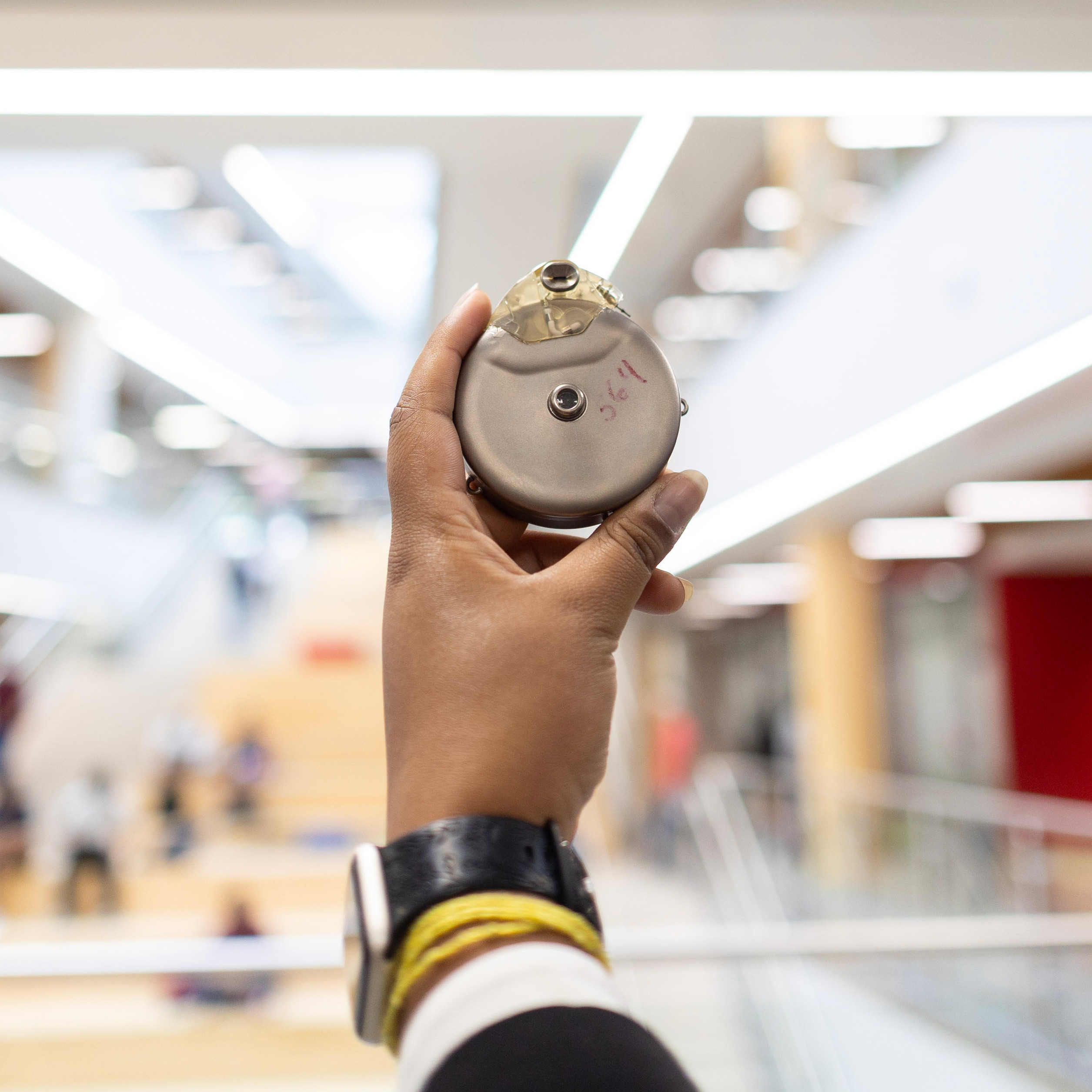
For the 2 million Americans living with Type 1 diabetes, managing blood sugar can be a constant burden. Technology, like insulin pumps and continuous glucose monitors, has improved quality of life for many living with the disease, but some patients still are unable to control their glucose with traditional pumps.
For some, the only option to achieve control is the use of an implantable pump that drips insulin directly to the liver. While available technology is programmable, many pumps are mostly operated manually, introducing the risk of human error and additional management.
To reduce this strain, one capstone team of five students from the Department of Biomedical Engineering at Texas A&M University was sponsored by Medtronic MiniMed to create a closed-loop algorithm for the implantable insulin pump system to serve the most vulnerable patients.
“The pump calculates if your blood sugar is too high and if we need to lower it, then gives an insulin dose,” said team member Jacob Kimbrough. “If you're low, the algorithm is going to back off on the basal rate to try and bring your blood sugar back up. With the closed-loop system, the pump and glucose monitor continuously communicate, so there's no need for the patient to input numbers.”
For Kimbrough, personal experience with Type 1 diabetes provided valuable insight into the patient perspective.

“This is what I deal with on a daily basis," he said. "I already know how this works, and I can see how to improve it."
Gary Dulak, senior director of new ventures at Medtronic MiniMed, believes the team is contributing to future-facing ideas that industry has limited bandwidth to pursue, laying the initial groundwork for future development.
"The team brought remarkable energy, passion and unique ideas, which were inspiring to us,” Dulak said. “Their commitment to Medtronic’s mission of meeting the patient where they are in their journey was evident in their dedication to the project.”
This system is the first step towards a less burdensome approach to diabetes management therapy. Medtronic will continue to build on the team’s work to make its project a reality.
“This collaboration not only helped us move forward the evolution of the implantable pump system, but provided students with valuable real-world experience in medical devices and team dynamics,” Dulak said. “Our engineers are excited to build on the team’s work for the next generation of this product.”